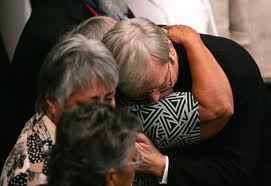In this post I'm going to talk about of one of the greatest characters in history of the human rights fight, Mahatma Gandhi and how this man got an influence in the world with his ideology and his wisdom.
Firstly, I must say why I chose this topic to my entry. Well, all began when I was working with my group in our presentation about Martin Luther King Jr's life. In that moment, I really shocked with relevance that Gandhi's words had in the Luther´s movement of civil rights and how this words and thoughts full of peace and love motivated him to fight in a peaceful way. I remember that when I was reading about this meeting with Gandhi in one of the chapters given by professor to my group. I was thinking something like: "This guy was really awesome and not only per give inspiration to so many people including the great Martin Luther KIng, but by his beautiful way to fight against injustice through love."
Who was Mahatma Gandhi?
Mohandas Karamchand Gandhi (generally known as Mahatma Gandhi) was the primary leader of India's independence movement and also the architect of a form of civil disobedience that would influence in the world.
He was born on October 2, 1869, in Porbandar (India). He studied Law in London. Nevertheless in 1893 he went to South Africa, where he spent 20 years opposing to discriminatory legislation against Indians. Due to he was the pioneer of Satyagraha (one of the most potent philosophies in freedom struggles throughout the world) and he started the resistance through the mass non-violent civil disobedience, he became one of the major political and spiritual leaders of his time.
In 1914, Gandhi returned to India, where he supported the Home Rule movement, and became leader of the Indian National Congress, advocated a policy of non-violent non-co-operation to achieve independence. He always struggled to alleviate poverty, liberate women and put an end to caste discrimination, with the ultimate objective being self-rule for India.
Following his civil disobedience campaign (1919-22), he was jailed for conspiracy (1922-24). On his release from prison (1931), he attended the London Round Table Conference on Indian Contitutional Reform. In 1946, he negotiated with Cabinet Mission wich recommended the new constitutional structure. After independence (1947), he tried to stop the Hindu.Muslim conflict in Bengal, where he was murdered in Delhi by Nathuram Godse, a Hindu fanatic.
Even after his death, Gandhi's words still are a symbol of hope and love in a world full of inequalities and discrimination especially to minorities. In addition, the non-violence philosophy of Gandhi was and is a source of inspiration to many people who want to participate in movements in favor of human rights.
Finally, I invite you to listen the follow emotive speech of this great man:
+17.32.17.png)
+17.31.17.png)
+17.32.26.png)


